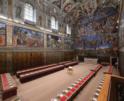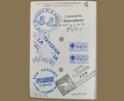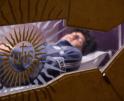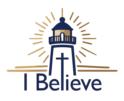
Faith
The identity of the man to be elected is less important than the fact that a Holy Father is elected and that the mission of the Church goes on.
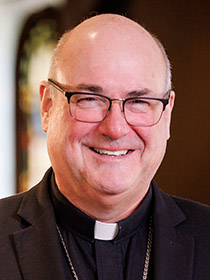
Henning
As I write this column, the conclave to elect the new Holy Father has not yet begun, as we have only just concluded the nine days of mourning for Pope Francis. It is possible that even as this issue of The Pilot is published there may be a new Holy Father elected.
I freely admit that I have no idea who might be elected as the next pope. I understand why so many speculate on the question and search for hints of the direction the cardinal electors might take. The ministry of the Holy Father is critical to the life of the Church and indeed to the world. And yet, I find myself avoiding such speculation. I believe that this process is not about our opinions, but about our openness to the will of God for the Church.
This is not an election in the modern political sense. Its original model may be found in the Acts of the Apostles. After the Resurrection, the Apostles desired to reestablish the Twelve after the betrayal and death of Judas. There was no campaign but rather the "casting of lots" between two candidates who had been witnesses to the Resurrection:
"Then they prayed, 'You, Lord, who know the hearts of all, show which one of these two you have chosen to take the place in this apostolic ministry from which Judas turned away to go to his own place.' Then they gave lots to them, and the lot fell upon Matthias, and he was counted with the 11 apostles." (Acts 1:24-26)
The "election" of Matthias was, in fact, a means of discerning God's will, not that of any individual or even of the majority. This example from the very earliest days of the Church points to a foundational principle of the Catholic faith. Religious and clergy make explicit promises of obedience to their superiors, but all the baptized are called to respect and obey those who govern the Church. In every age, such a commitment is difficult and it is perhaps more so in the modern age when we so frequently distrust authority. The point of the Scriptures is that the gift of our trust and obedience is not given to the particular Church leader but to the Lord Himself. As individuals and as the Church, we trust the Lord and His will for the world.
We may have hopes for the identity or character of the next pope but we would be wiser to simply pray that the cardinals will listen for the promptings of the Spirit and offer us the Holy Father that God intends for the Church. The identity of the man to be elected is less important than the fact that a Holy Father is elected and that the mission of the Church goes on. We should be praying for that man as he will assume a burden for us all and surrender his own freedom to the service of the Lord and the Church. While he may wield the greatest authority in the Church, his personal life and activities will be decided for him in this new ministry.
So, whatever the outcome of the conclave, I will rejoice that the Lord provides for His Church and that he provides us with the 267th link in the chain, uniting us to the Lord's own mission and ministry through the call of Peter and his successors. May God bless that man with strength for the mission and bless the Church with renewal and new life.
- Archbishop Richard G. Henning is the Archbishop of Boston
Recent articles in the Faith & Family section
-
All eyes on RomeJaymie Stuart Wolfe
-
On the Camino: Many CaminosMark T. Valley
-
Pedestal deserved: Carlo Acutis' digital authenticitySister Hosea Rupprecht, FSP
-
ConclaveArchbishop Richard G. Henning
-
Journey to the Ends of the Earth in PrayerMaureen Crowley Heil

